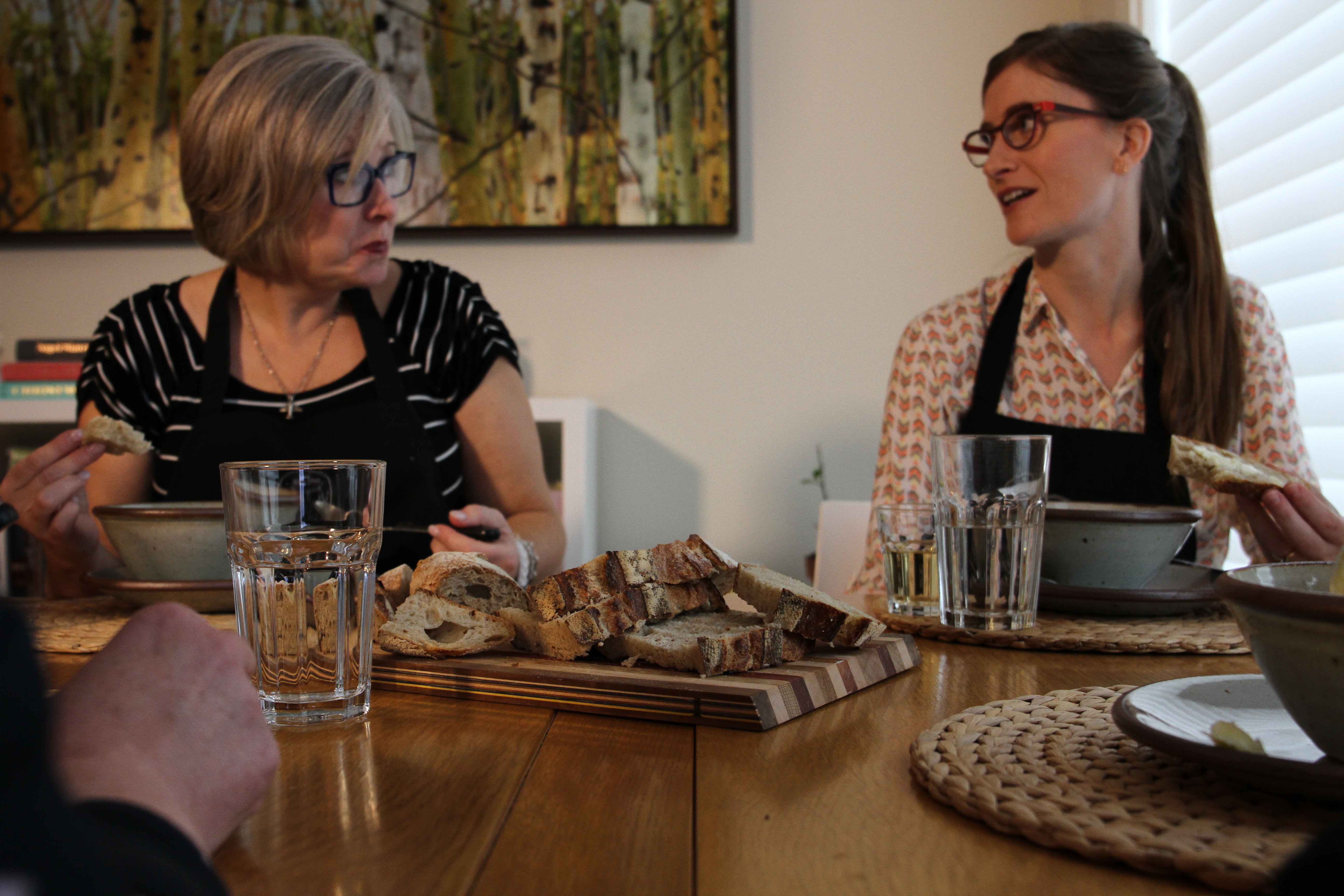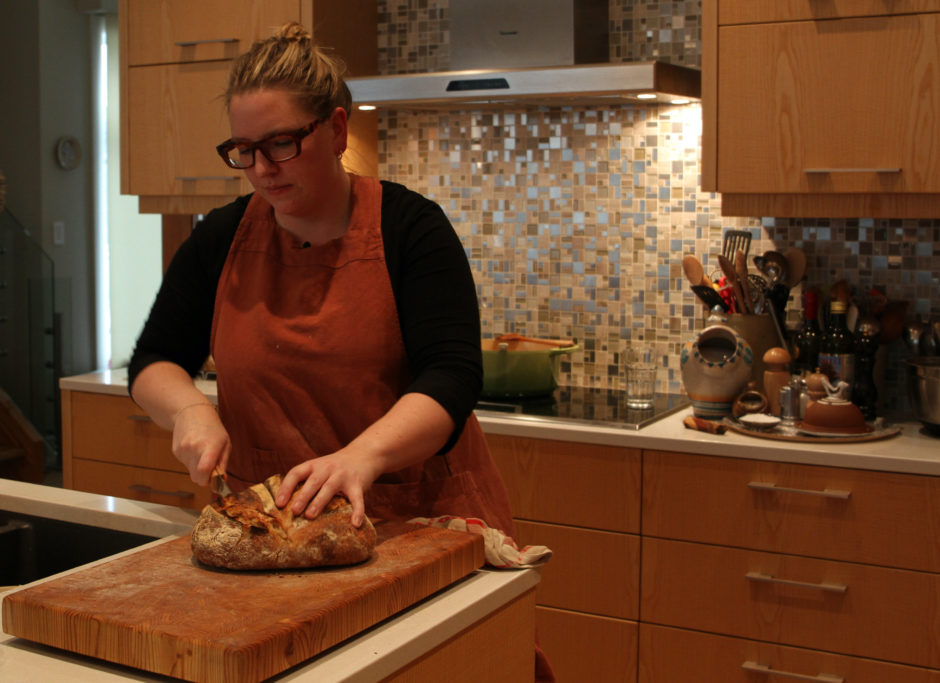November 27, 2018
Patience. It’s the main ingredient in every loaf of sourdough bread lovingly prepared by Edmonton baker Kaelin Whittaker.
“You have to want to make the bread,” Whittaker said. “If it’s just something that you’re jumping on because it’s trendy right now, and you don’t really have the interest in it, you won’t make the time.”
Baking a loaf of sourdough bread takes hours. The dough needs to sit to achieve the right consistency. It needs to be handled with care.
Whittaker wouldn’t have it any other way.
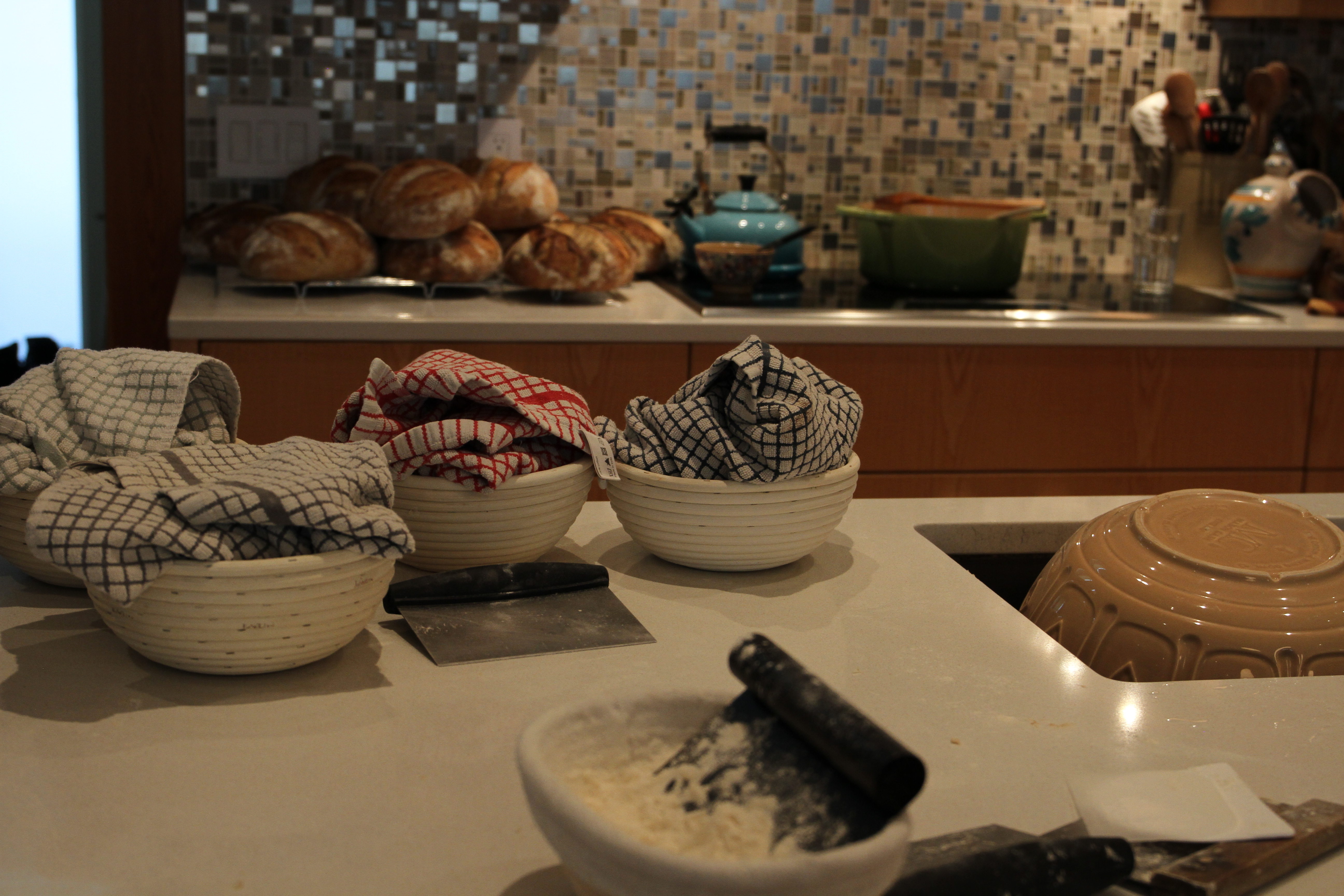
'Bread is the simplest of foods, it’s part of every culture.'
She learned to make bread from scratch in Ireland, while studying at the Ballymaloe Cookery School. Whittaker spent years perfecting her sourdough recipe.
“It never gets old, I love the process,” she said. “You have to be very gentle, that’s the process I really enjoy.”
Whittaker is on a mission to share her love of bread with others. She offers a variety of baking classes through her business, The Ruby Apron.
“Bread is the simplest of foods, it’s part of every culture,” she said.
“Seeing a loaf of bread, and pulling it out of the oven, smelling it, I think there’s something quite lovely about that.”
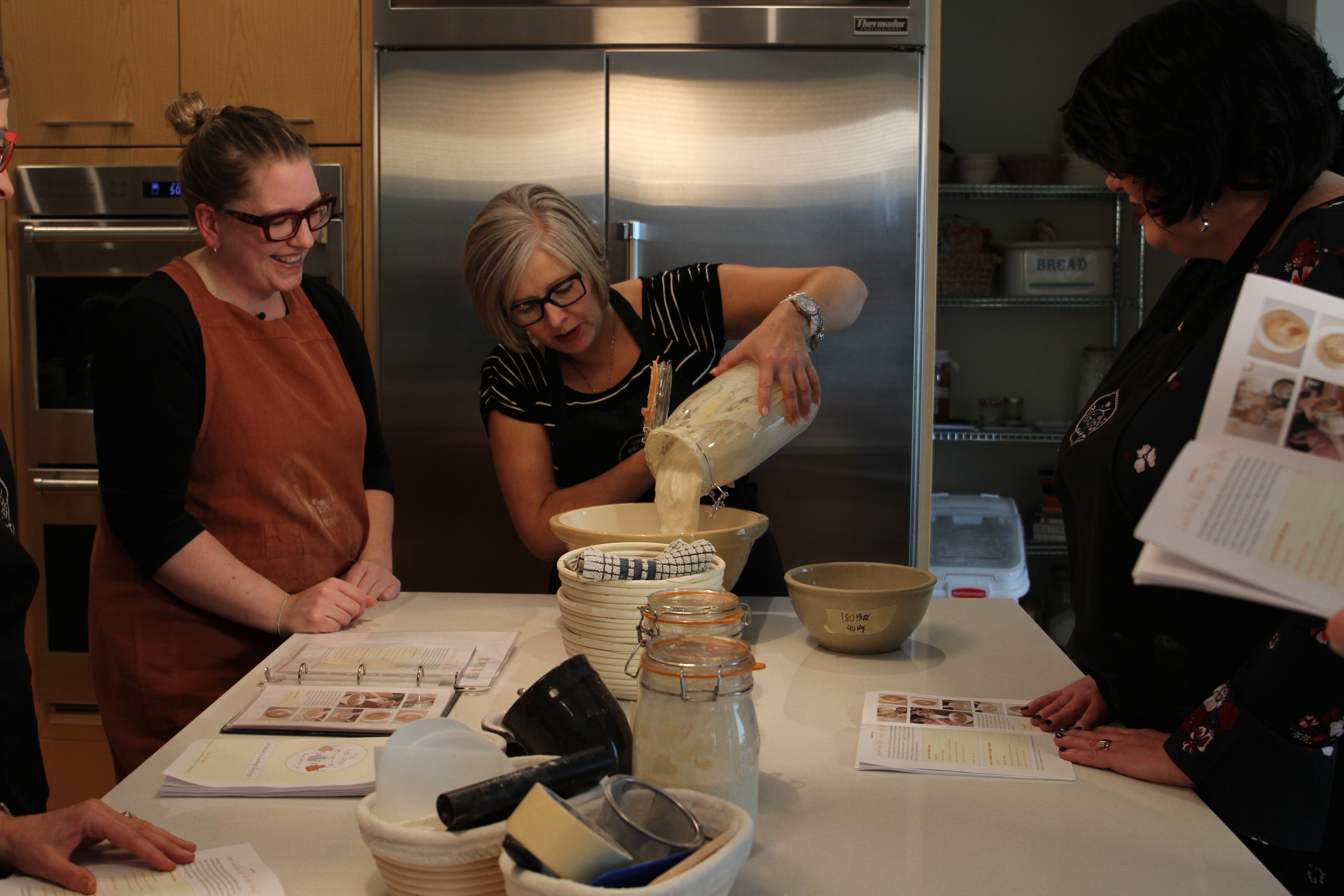
Sourdough is made with a starter - a mixture of fermented flour and water that makes the dough rise and gives the loaf its flavour.
The yeast and bacteria culture is kept alive by regularly adding flour and water to it, Whittaker explained.
“Your starter is your baby,” she said with a laugh. “Sometimes when I send it home with people they say ‘It’s like you sent me home with a child, now I have to deal with what’s in this jar.’”
The starter also serves another function. The fermentation process breaks down gluten, making sourdough bread easier to digest for people with a gluten intolerance.
“It’s half eaten when it gets to our belly, kind of.”
Bread has become disconnected from tradition, and is mass produced in a way that is unhealthy for people, Whittaker said.
“It’s actually not bread that’s bad, it’s the process of either how the bread’s been made, or how the flour has been processed.”
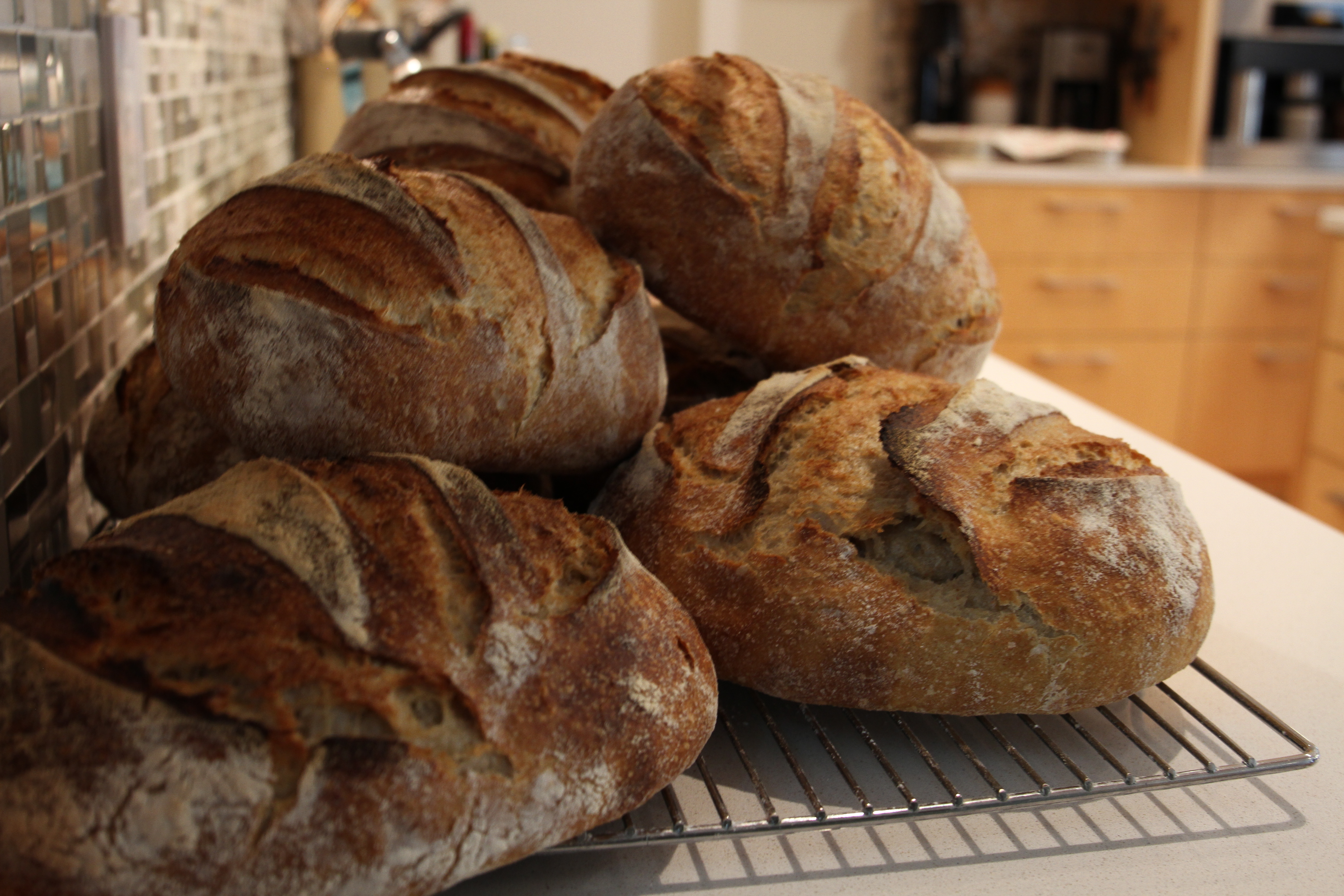
The loaves found in stores are often made with additives and poor quality ingredients, Whittaker said.
“It showcases what’s wrong with our food system quite well.”
She sources her grains from two Alberta producers, Gold Forest Grains in Morinville and Highwood Crossing in High River.
“The big thing that’s important with flour is that it’s fresh, and that’s not always the easiest to trace,” she said.
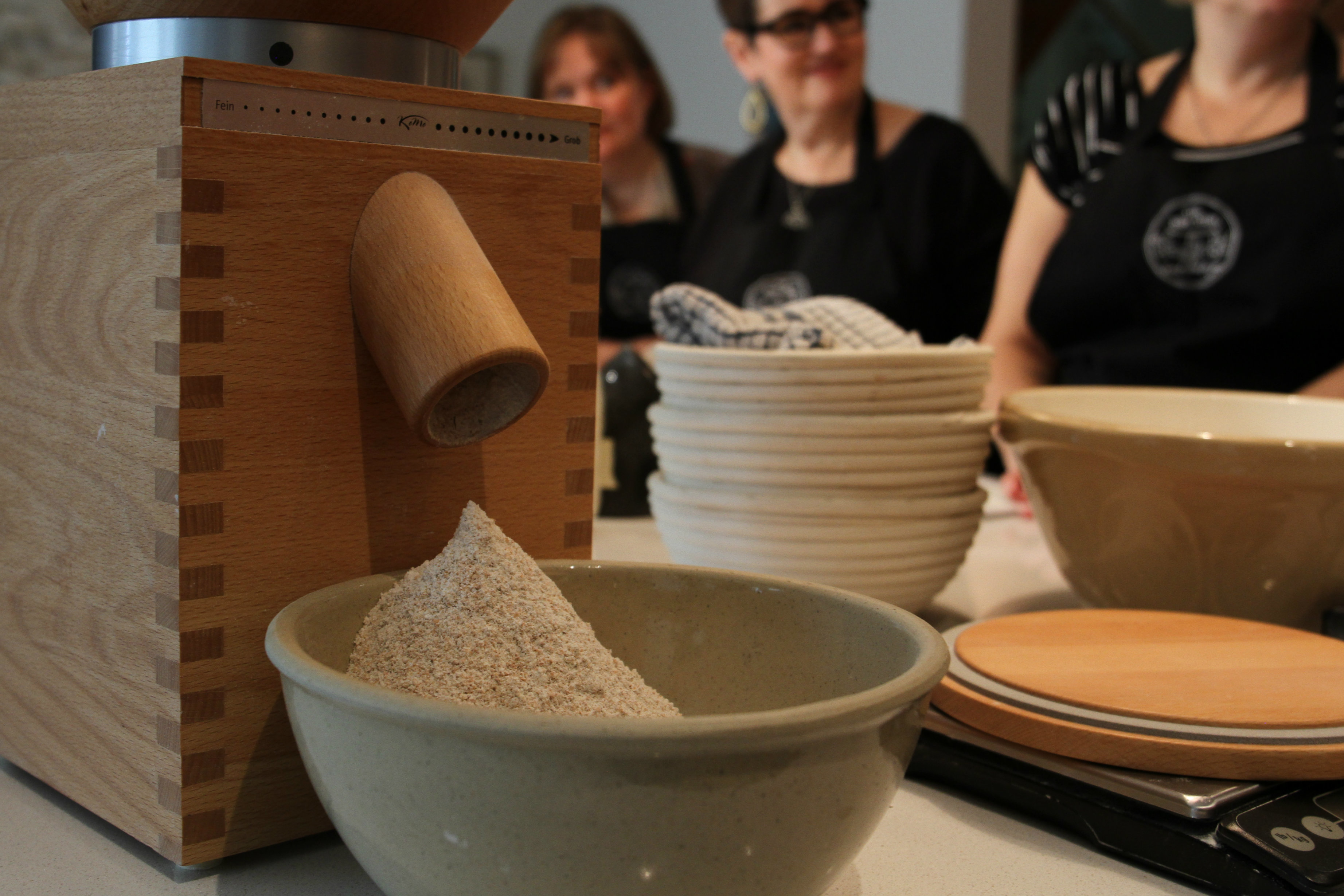
'We’re surrounded by grain farming, but we’re so removed from how it’s grown.'
Whittaker mills her own flour at home, and encourages her students to speak with producers to find out how fresh their batch is.
“We mill the grains sometimes hours before people consume it, and we mill the grain whole,” said John Schneider, owner of Gold Forest Grains.
Flour made from his heirloom grains, like the Red Fife wheat preferred by Whittaker, contains flavourful germ and oil.
“They have a wonderful taste to them,” Schneider said. “When you use our entire wheat, stone milled flour, your baking tastes completely different. It’s indescribable.”
Whittaker founded Real Bread Alberta to connect grain producers with bakers, and people who want to know more about traditional bread.
“We’re surrounded by grain farming, but we’re so removed from how it’s grown,” said Whittaker.
'Bread is the simplest of foods.'
She also wants to share her love of bread in local schools.
“You’ll never lose that skill of knowing how to make bread.”
She said her classes, which always end with a shared meal, have shown her the community building potential of bread.
“I’ve seen friendships over bread,” said Whittaker. “There’s a huge bread community, not only in Alberta, but across the world.”
“People want to share their secrets, and what they’re doing. They want to talk about it.”
